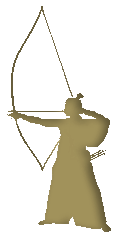
The Cowboy effect
When you hear the word cowboy, what is the first thing that crosses your mind?
Is it the boots, the hat, the jeans, the six-gun?
Or is it maybe, the spirit of the “old West”? A sense and attitude of freedom, solitude and independence, like to ride across un-fenced open plains?
Does Clint Eastwood’s wicked eye before the fast draw ring a bell? Would a little Morricone coyote cry music help?Usually the word cowboy bringing in mind one, or some, of the above, but I never heard it to bring in mind…the cow!
The basic concept of stories that include cowboy heroes (with the freedom of variations of course) is as follows:
A “stranger” (if we knew “him” there would be no mystery, would it?) rides unexpected in the small town, that is usually a theater of many troubles.
As he passes through the main road his presence attracts the attention of just about everybody, who react each one in his own way.
Our stranger covered with dust, unshaved and armed, doesn’t take his stare off, from his straight ahead destination.
He will make his “tour” at the city’s pathetic Hotel, the barber and the saloon, without saying much, but everything from the first moment on, will lead him from a short fistfight to the inevitable final gunfight, where he will prove his worth.
As he leaves town riding into a sunset, the place he leaves behind will never be the same and his actions will not be easily forgotten.More or less, this is how the western stories go, we all know that. But we still go see westerns, or even better, we see one more time the unforgettable classic ones, even if we know how it ends.
But what we usually don’t know is that in reality all these kinds of westerns are inspired from Samurai stories!
Please don’t be in a hurry to turn this down, I could not believe it myself in the beginning. But the documentary I saw, plus the raving research that I did in order to crosscheck, left no room for doubts and errors.
Notorious directors, like Sergio Leone, were inspired by (and sometimes copied) Samurai stories, combining them with the freedom of the “open West”.
Later on, the image of the fast drawing cowboy remained as a fact, but in reality this image had strictly to do with a certain type of Samurai warrior.In the, more than a thousand years of Samurai rule, some of them were “drifters” (ronin) very much like in the concept of cowboy outlaws.
Those figures where wandering from town to town and village to village, writing their own history. They were hired guns… swords would be more proper to say, that would use their skill for fame and fortune.
One of the most famous of all was Miyamoto Musashi, who was undefeated in just about any duel (with the exception of one) that came his way.
There is no business manager today (with some self-respect) that has not read Musashi’s strategy book “A book of five rings” that is sold nowadays, more than five hundred years after his death!Wandering warriors of that sort where not respected at all by the casual Samurai, that where in the service of a Lord, and would hunt them down on every occasion. And they are neither respected by today’s Martial Arts Masters, because “they left us nothing”. But people just love them…
It would be a neglect at this point not to mention the only warriors allowed in feudal Japan to carry a sword, except for the class of the Samurai.
Warrior monks!
Many warrior monks were fearless fighters and would take on to duel the Samurai just for the proof of who is best. Who is the “fastest gun” as in the… cowboy term!
Please keep in mind that the title monk had little, or nothing, to do as we mean it here in the west. So, if for example “monk” brings you in mind the word prayer, in the case of the warrior monks we talk about, the only prayer to think about is the one you would whisper for falling into his path!It is a fact of recorded history today, when that sort of… Desperado Samurai would leave, after having finished his business, he would stick with a suriken (small palm knife) at the exit gate of the town a piece of paper.
On it would be written a poem, a koan or a conclusion punch line.
It is said that everybody would read it, but nobody would take it down, until the rain would wash it away!Today, even city boys that never rode a saddle, consider themselves to be “cowboys” of some sort. And along with the boots and the jeans, would like to think that their word and attitude is solid, as only a cowboy’s would be.
Well at least maybe some of you have found out today why you liked so much cowboy heroes, but without the… cow!July 22, 2006